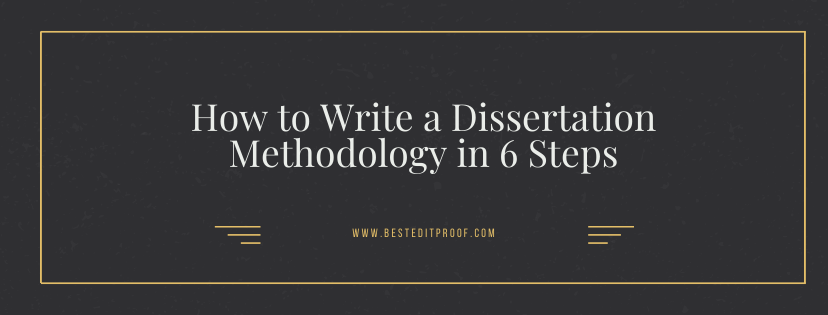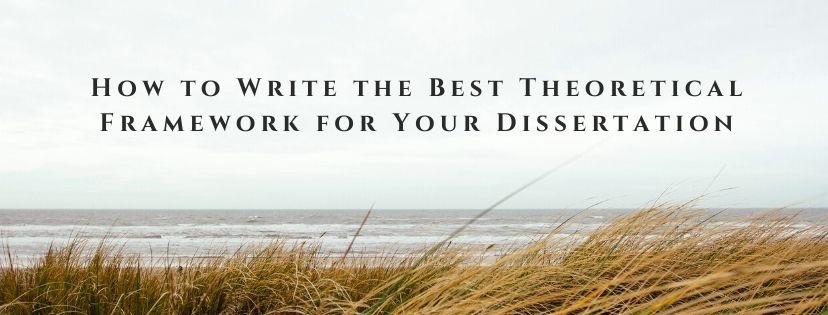Best English Editing and Proofreading Service

The central tendency, mean, median, and mode depict where most data points concentrate, while variability illustrates how far they are. It is exceedingly crucial because the amount of variability demonstrates the generalization one can make from the sample to the population. Low variability is desirable because it implies that predicting information about the population using sample data is well-justified. Contrarily, high variability illustrates decreased consistency, making data predictions harder.
Continue Reading
While researching a group of people, collecting data from every person in that group is virtually impossible. To counter this issue, you choose a sample. What is the difference between population and sample? What sampling methods should you use in your dissertation?
Continue Reading
Formal writing is essential to academic essays, a thesis, or a dissertation. Many issues may dent your writing. This article covers 7 critical ones to avoid that may affect the quality of thesis and dissertation writing.
Continue Reading
Formal writing can cover everything from academic essays to a thesis or dissertation; a few fundamental rules are valid in all types of academic writing. A student can find writing in different formats boring or unbearable. With the following tips, you will start finding academic writing almost enjoyable and utterly rewarding.
Continue Reading
In statistics, a population refers to the pool of individuals from which one can draw the statistical sample for a study. A population includes a complete set of individuals. That group can comprise a nation or people sharing common characteristics.
Continue Reading
When you deal with experiments, you investigate the causal relationship between variables. What you fundamentally do is manipulate one or more than one independent variable (x) to determine their effect on dependent variables (y).
Continue Reading
The corpus research suggests that the most often used tenses in academic writing are the simple present, the simple past, and the present perfect. Then, what comes next is the future tense.
Continue Reading
An abstract usually summarizes a lengthier work (including a dissertation, thesis, research paper, or review). The abstract should explicitly state the objectives and results of your research. Thus, readers can learn what your research addresses.
Continue Reading
Research methods are specific procedures for collecting and analyzing data. Therefore, your research methods form the most critical part of your research design. You must make two crucial decisions during your method planning.
Continue Reading
A hypothesis is a testable statement on which scientific research focus. Suppose you wish to investigate a relationship between two or more variables. In that case, you must construct hypotheses before you begin your experiment or data collection.
Continue Reading
For a high-quality research paper, dissertation, or thesis, a helpful research question plays a critical role in designing it. It precisely suggests what you wish to study, presenting your research's apparent emphasis and objective.
Continue Reading
Briefly, research objectives are all about what you intend to achieve in your project. Therefore, they are expected to list every stage of the research and cover which methods they have used to gather data, establish their focal point, and advance their conclusions.
Continue Reading
After successfully specifying your project’s research problem, penning a problem statement pursues. Two crucial properties of an efficient problem statement are its conciseness and tangibility.
Continue Reading
What you aim to address in your dissertation relates to a research problem. It is primarily a unique issue, challenge, paradox, or breach in the current literature. It would be best if you searched for practical problems and targeted addressing them to expand the actual knowledge.
Continue Reading
Scholars must write a research proposal to receive funding to support their projects and provide their graduate students with the needed funds to pursue post-graduate studies. Even you, as a student, may have to write one before you begin your thesis or dissertation. Whatever the objective is, one issue remains the most relevant.
Continue Reading
The first step includes choosing a subject for your thesis, dissertation, or research project and ensuring the process becomes rewarding and smooth. One should consider many issues before deciding on a topic.
Continue Reading
Now, you have finished your thesis or dissertation. The next is writing a research paper based on your thesis and dissertation. A research paper is vital for academic writing, supplying in-depth analysis, comments, and in-depth discussion about your research.
Continue Reading
Your thesis or dissertation ends with the conclusion. Its primary purposes include addressing the main research question, summarizing and echoing the study, presenting future studies recommendations, and depicting your contribution's novel knowledge.
Continue Reading
You discuss and explore your results' prominence, meaning, and relevance in the discussion chapter. Therefore, you should concentrate on what you have found and explain and assess how your findings relate to your literature review and research questions.
Continue Reading
After gathering and analyzing your data, next is penning the results. You report the primary findings of your study in this section. The most critical issue is that reporting your results must be concise and pursue a logical order.
Continue Reading
Research methodology is about the data collection and analysis methods employed in your research. Thus, this section addresses what you performed and how you did it, letting readers assess the reliability and validity of your study and is a critical part of your thesis or dissertation.
Continue Reading
Researchers develop theories to explain phenomena, build connections, and make educated guesses. Therefore, you illustrate the existing ideas supporting your dissertation or thesis in a theoretical framework, depicting that your work has a solid foundation.
Continue Reading
A literature review includes academic sources on a specific topic. It aims to supply up-to-date knowledge, ensuring that you specify relevant theories, methodologies, and deficiencies in the extant research.
Continue Reading
The first chapter of your thesis or dissertation includes the introduction. You should provide the reader with a solid start. Next is staging your research with an apparent focus, objective, and direction.
Continue Reading
An abstract, is an important part of an academic work and a synopsis of a longer study such as a dissertation or thesis. Its most critical aspect is precise reporting of the objectives and outcomes of your research. Thus, the readers can learn about your work by perusing your abstract.
Continue Reading
We may have qualitative, quantitative, and mixed methods in dissertations. This blog will elaborate on quantitative dissertations, qualitative dissertations, and mixed methods dissertations by addressing their similarities and differences.
Continue Reading
After you finish your thesis, what is next is editing your thesis. Rather than sending it to your friends or professors, a better option is to find a professional editing and proofreading service. They usually have trained and experienced experts, have Ph.D. in their fields, and will edit your thesis without prejudice. Their suggestions will improve your thesis's content and structure, rendering it much more effective.
Continue Reading
What is most critical is that your thesis statement should reflect the primary points of your paper or essay. Its most frequent place is at the end of the introduction section. Based on the essay you are penning, your thesis may look different. Nevertheless, the essential idea must be in your thesis statement so that people can comprehend your fundamental idea. What is left in your essay should relate to the main idea.
Continue Reading
Writing a thesis or dissertation is considered the final phase of your Ph.D. journey. You must cover three to five years of study and research into your thesis. A doctoral thesis or dissertation is a long essay of knowledge and research on a specific niche that poses interesting questions and answers with your reasoning. Ph.D. candidates should carefully choose the study topic according to their expertise. This article explains how to write an impeccable Ph.D. thesis for outstanding results in 6 helpful steps.
Continue Reading
A thesis statement is the main academic argument of the thesis that distills the central idea of the study informing the readers about your stance on your thesis topic and is therefore an integral part of writing the thesis. When writing a thesis statement, there are several contentions regarding the right approach. And understandably so, for there are no definite writing rules. But there certainly are writing best practices. In this article, we will look at some of these best practices and how you can leverage them to write a formidable thesis statement. But prior to that, let’s understand what a thesis statement is.
Continue Reading
Writing a thesis can be an overwhelming task for many college and graduate students. Managing all the elements associated with a thesis while ensuring that the quality is not compromised can be challenging. However, what is even more strenuous is deciding on a thesis's layout. "How to structure a thesis" is a question that several final-year students struggle to answer. And understandably so, as all colleges and universities have their guidelines for drafting a thesis. However, there is an immutable structure that's common for every thesis. In this brief guide, we will take a look at this structure and analyze each of its components.
Continue Reading
It is not uncommon for individuals, academic and nonacademic to use “thesis” and “research paper” interchangeably. However, while the thesis vs. research paper puzzle might seem amusing to some, for graduate, postgraduate and doctoral students, knowing the differences between the two is crucial. Not only does a clear demarcation of the two terms help you acquire a precise approach toward writing each of them, but it also helps you keep in mind the subtle nuances that go into creating the two documents. This brief guide discusses the main difference between a thesis and a research paper.
Continue Reading
The dissertation writing process is a lengthy, extensive and multi-faceted undertaking spanning several months (or even years). It is an exacting exercise comprising several steps, each with its own requisites that scholars need to fulfill duly. Hence, regardless of how strategic and meticulous a scholar's dissertation writing approach is, there are bound to be certain inconsistencies - grammatical errors, incoherent phrasing, inappropriate synonyms, formatting errors, etc., - even in the final draft.
Continue Reading
A dissertation defense is one of the critical milestones one needs to cross to obtain a doctoral degree. It is a process that helps a candidate proffer their research knowledge to an audience of accomplished academics. Thus, preparing to defend a dissertation can feel distressing and burdensome, for one needs to tick several checkboxes at once. But, with the right set of steps and adequate practice, candidates can successfully overcome this unease.
Continue Reading
Choosing a topic for your dissertation or thesis at the end of your master's or doctoral study can become a daunting task. You must select a topic that you find interesting to work on. A dissertation/thesis is a crucial piece of work as it carries enormous credit points at the end of the master's study or postgraduate year. Therefore, you must choose the right and the most suitable topic. Here are some helpful tips for choosing a dissertation and thesis topic that suits you the most.
Continue Reading
At the end of most undergraduate or postgraduate degrees, you are required to submit a thesis or a dissertation based on original research. The way of writing and the structure of a dissertation depends on your field of study and sometimes your program. However, it is largely divided into at least four or five chapters, including the introduction and conclusion. A dissertation is an extended usually written treatment of a subject, specifically one submitted for a doctorate. This article provides a step-by-step guide on writing and structuring a dissertation
Continue Reading
A methodology section explains the entire process of data collection and analysis based on logic and philosophy. This section is an unavoidable part of a dissertation or a research paper. Considering errors in the methodology section enervates the entire dissertation. Here, we bring you a general guide on the steps to compose a flawless methodology section for a dissertation.
Continue Reading
While composing a thesis or dissertation, a student must experience some predicted traps. Falling into these traps can affect one’s academic career. However, handling potential blunders and pitfalls wisely, while developing a thesis, can lead you to success. The process of writing may be frustrating but learning about the probable pitfalls may ease your stress. Here, we bring you the list of the most common mistakes we have noticed as a professional proofreading and editing service provider.
Continue Reading
A theoretical framework primarily supports the idea of a research study. It bears all the theories that prove the essence and importance of any research. In a nutshell, it is developed to explain the research and comprehend its circumstances. It may involve all the theory-based logic behind the importance and existence of your research in academics. This step-by-step guide discusses how to build a theoretical framework for a dissertation.
Continue Reading
You have been working hard on your research paper and want to write an excellent dissertation/thesis. You have researched all the materials, and your data are perfect— all you need to do is put them together in a dissertation or thesis. But how do you manage that? While working on the research is not easy, it’s structuring a dissertation or thesis that the main issue lies with. Therefore, if you are struggling with structuring your dissertation or thesis, this article may be of help.
Continue Reading
Who decides the layout requirements for a dissertation? The answer is primarily clear, either your supervisor or department. Nonetheless, each program has a standard guideline determining page numbers and table of contents. Should you use MLA or APA citation style, you follow the MLA format guide or APA guide. Here are 10 useful tips for dissertation layout and formatting.
Continue Reading